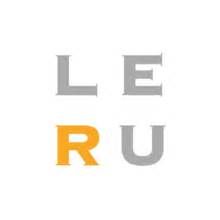 It is widely agreed that competition, or lack thereof, in health care is a problem. The Wall Street Journal recently showed how Viagra and Cialis prices seem to move -- up, of course -- in lockstep. USA Today found Walgreens charging 1237% more than Costco, for the same drug. Economists like Martin Gaynor have been discussing problems with competition in health care for years. The Harvard Business Review just published a lengthy article on the problem. But, it turns out, we may be ignoring an important competition that has real impacts on our health: with each other...
It is widely agreed that competition, or lack thereof, in health care is a problem. The Wall Street Journal recently showed how Viagra and Cialis prices seem to move -- up, of course -- in lockstep. USA Today found Walgreens charging 1237% more than Costco, for the same drug. Economists like Martin Gaynor have been discussing problems with competition in health care for years. The Harvard Business Review just published a lengthy article on the problem. But, it turns out, we may be ignoring an important competition that has real impacts on our health: with each other...
University College London
See the following -
Copyright Clearance Center Announces Findings From Open Access Roundtable Discussion With UK Institutions and Publishers
Independent Report Finds a Shared Desire to Simplify and Standardize Payment and Tracking of Article Processing Charges Read More »
- Login to post comments
Four PLOS authors receive 2016 Breakthrough Prize in Life Sciences
 Through the Breakthrough Prize – initiated and funded in 2012 by Bay Area biotechnology innovators, social media venture capitalists and successful internet entrepreneurs – outstanding scientists working in the fields of life sciences, fundamental physics and mathematics receive recognition, money and a bit of glamour. This year, four of the five scientists awarded a $3 million Breakthrough Prize in Life Sciences chose to publish some of their work in Open Access journals over the course of their careers. In so doing, Edward S. Boyden, Karl Deisseroth, John Hardy and Svante Pääbo ensure their research is available for distribution, discovery and reuse, introducing opportunities for all scientists to build on their discoveries...
Through the Breakthrough Prize – initiated and funded in 2012 by Bay Area biotechnology innovators, social media venture capitalists and successful internet entrepreneurs – outstanding scientists working in the fields of life sciences, fundamental physics and mathematics receive recognition, money and a bit of glamour. This year, four of the five scientists awarded a $3 million Breakthrough Prize in Life Sciences chose to publish some of their work in Open Access journals over the course of their careers. In so doing, Edward S. Boyden, Karl Deisseroth, John Hardy and Svante Pääbo ensure their research is available for distribution, discovery and reuse, introducing opportunities for all scientists to build on their discoveries...
- Login to post comments
I'm OK -- You, Maybe Not So Much
- Login to post comments
King's College Accelerates Synthetic Brain 3D Image Creation Using Open Source AI Models and Software Powered by Cambridge-1 Supercomputer
 King College London, along with partner hospitals and university collaborators, unveiled new details today about one of the first projects on Cambridge-1, the United Kingdom's most powerful supercomputer. The Synthetic Brain Project is focused on building deep learning models that can synthesize artificial 3D MRI images of human brains. These models can help scientists understand what a human brain looks like across a variety of ages, genders, and diseases. The AI models were developed by King's and NVIDIA data scientists and engineers as part of The London Medical Imaging & AI Centre for Value Based Healthcare research funded by UK Research and Innovation and a Wellcome Flagship Programme (in collaboration with University College London).
King College London, along with partner hospitals and university collaborators, unveiled new details today about one of the first projects on Cambridge-1, the United Kingdom's most powerful supercomputer. The Synthetic Brain Project is focused on building deep learning models that can synthesize artificial 3D MRI images of human brains. These models can help scientists understand what a human brain looks like across a variety of ages, genders, and diseases. The AI models were developed by King's and NVIDIA data scientists and engineers as part of The London Medical Imaging & AI Centre for Value Based Healthcare research funded by UK Research and Innovation and a Wellcome Flagship Programme (in collaboration with University College London).
- Login to post comments
Open Data Institute: Over £40m Value Unlocked Worldwide
 The Open Data Institute (ODI) has announced that the total value it has helped unlock to the open data ecosystem has exceeded £40m in the three years since it opened. This includes direct income, grants and competition funding, incubated ODI Startup income and the ODI Node franchise network. Also today, the company confirmed that five new startup businesses, and four new franchise nodes will join and that its membership programme has topped 350 participants, including the Co-op and Ocado.
The Open Data Institute (ODI) has announced that the total value it has helped unlock to the open data ecosystem has exceeded £40m in the three years since it opened. This includes direct income, grants and competition funding, incubated ODI Startup income and the ODI Node franchise network. Also today, the company confirmed that five new startup businesses, and four new franchise nodes will join and that its membership programme has topped 350 participants, including the Co-op and Ocado.
- Login to post comments
Paralyzed Man Darek Fidyka Walks Again After Pioneering Surgery
Medical team regrow cells of patient’s severed spine in breakthrough that offers hope to millions with disability. A man who was completely paralysed from the waist down can walk again after a British-funded surgical breakthrough which offers hope to millions of people who are disabled by spinal cord injuries. Polish surgeons used nerve-supporting cells from the nose of Darek Fidyka, a Bulgarian man who was injured four years ago, to provide pathways along which the broken tissue was able to grow...
- Login to post comments
The Dutch Presidency Rises to the Occasion: 15 Council Conclusions That Will Set the Way Forward for R&I in the European Union
 Today, the EU Member State Ministers responsible for Research have adopted conclusions that will set the way forward for research and innovation. These conclusions are the result of the exemplary Dutch Presidency of the EU Council. A Presidency that has put research high on the agenda and has made its actions match its words by delivering on its priorities. The Council conclusions set the course of action on the three main priorities identified by the Dutch Presidency in research and innovation...
Today, the EU Member State Ministers responsible for Research have adopted conclusions that will set the way forward for research and innovation. These conclusions are the result of the exemplary Dutch Presidency of the EU Council. A Presidency that has put research high on the agenda and has made its actions match its words by delivering on its priorities. The Council conclusions set the course of action on the three main priorities identified by the Dutch Presidency in research and innovation...
- Login to post comments